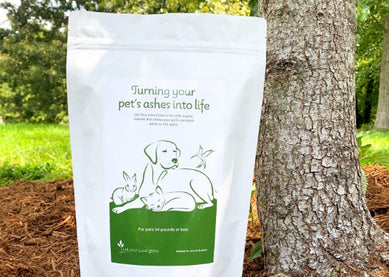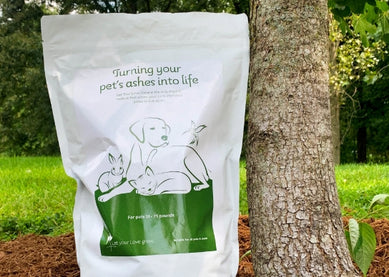Helping Children Cope with the Loss of a Pet
A survey conducted by the American Pet Products Association revealed that 67% or 85 million United States households are home to a pet. You may have been a pet parent to a kitten, rabbit, or pup for a couple of years before your children. We can bet that the bond between your pet and your child was instinctive and immediate!
For a significant portion of the 35 million children in the United States, pets may have played an important role in shaping their lives and childhood. Sometimes, pets are a constant companion to your children from the day of their birth.
Research has revealed that 1 in 5 children experience the death of a beloved one before they reach 18 years of age. For a lot of these children, the loss of a family pet may be their first experience of death. Your child may struggle to comprehend what has happened to their furry companion, where it has gone, or when it may come back.
Losing a pet is one of the most difficult experiences that a family has to go through. This may also prove to be a challenging time for the younger members of the family who could possibly struggle in expressing their grief and emotions.
While children do tend to grieve for relatively shorter periods of time, compared to adults, the grief is just as intense owing to the foreign nature of the emotion.
Discover 3 ways you can help your children cope with the loss of their beloved pet safely and securely.
Communicate Clearly and Honestly
The age of a child is more likely to determine how they will react to the loss of their pet. For instance, two and three-year-olds may have absolutely no understanding of what has happened to their furry companion. They may think that the pet is “asleep”.
In the case of a two or three-year-old, communicate honestly to your child that their pet is not going to come back. Let them know that there is nothing the child has done to cause this absence, as children may believe they are the reason for the same.
Children in the age group of 4 to 6 years may have a very basic understanding of death, possibly relating it to an alternate state of being alive. Children in this age group may believe that their anger or outbursts towards the pet were the cause of its death.
The best way to help your child deal with their emotions is by holding several brief discussions about their concerns and feelings. An honest, heart-to-heart, parent-child discussion with the intent to listen can be a great way to help them cope with their emotions.
Children in the age group of 7 to 9 years will be able to better understand the irreversibility of death. The loss of their pet may lead them to become curious about the event and its implications and ask questions. As a parent, think about how you would like to answer these questions. Being prepared to handle curiosity can help children understand what has happened.
Give Them Space to Process Their Emotions
Anyone dealing with the loss of a loved one will experience a number of emotions including sadness, anger, guilt, frustration, and denial. It is very likely that your child may also experience bouts of loneliness or may want to be left alone. This can leave you feeling helpless as a parent.
However, one of the best ways to help your children cope with and understand their emotions is by giving them the space to explore their grief. Consider having a conversation with them and listening to what they try to tell you. In the situation that your child is not in the mood to talk, you can communicate that you are always there to hear them out.
Another good way to help them cope with their grief is by demonstrating how you do it yourself. Hiding your own sadness may not be the best way to cope with your emotions or be an example for your child.
Instead, communicate openly about how you feel with your significant other, and do not be afraid to show your emotions. This will not only demonstrate that what your children are feeling is normal, but it will also help with healthier coping mechanisms. Reinforce that they are not alone in grief.
Celebrate Your Pet’s Life with a Temporary Shrine
After your pet has passed, it is likely that there will be items scattered around your home that may have belonged to your pet. These could include things like leashes, collars, food bowls, halos, or scratch posts.
Removing all of these items a little too soon after your pet’s passing can be jarring for your children. What you can choose to do instead is create a temporary shrine that honors your pet and the life it lived.
Choose a small, safe space in your home and arrange all these memories with some handwritten notes or pictures. Encourage your children to leave small letters or toys that they would like their pets to have. You can bring out paints and brushes and enjoy a session of art with your children, painting moments that you shared with your pet. This can be a good way to memorialize your furry companion.
Keep the shrine together for a couple of days while your children get accustomed to the absence of the pet. It is recommended that you wait a week or two before dismantling the shrine.
Remember, a child going through the stages of grief requires endless patience on the part of the caregivers. Create honest lines of communication between your children, your partner, and yourself. Encourage them to ask you questions and communicate their emotions in a manner most comfortable to them.
Given time, understanding, and comfort, your children will soon grow to accept the passing of their furry companion.







